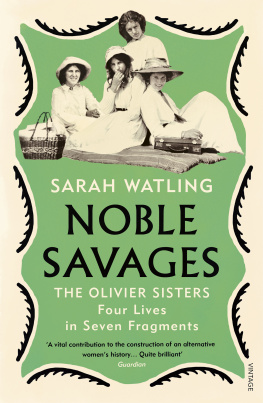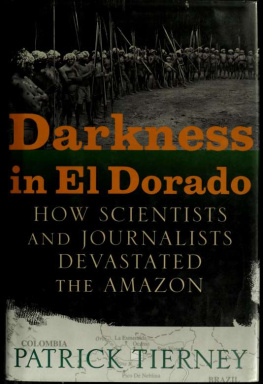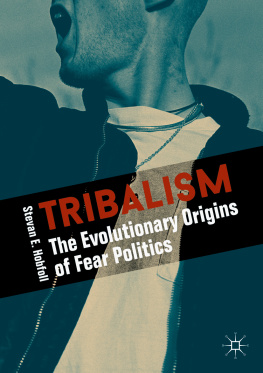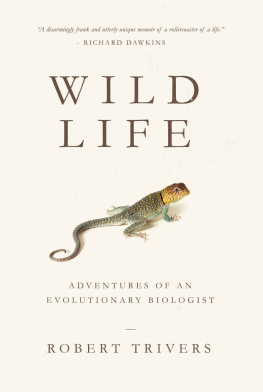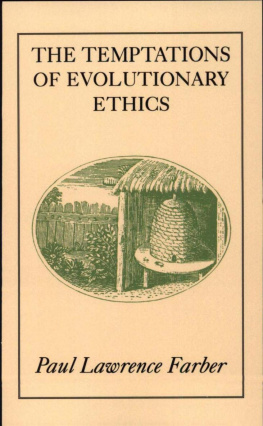Thank you for downloading this Simon & Schuster eBook.
Join our mailing list and get updates on new releases, deals, bonus content and other great books from Simon & Schuster.
C LICK H ERE T O S IGN U P
or visit us online to sign up at
eBookNews.SimonandSchuster.com
Contents
Praise for Noble Savages
One of historys greatest anthropologistsand a rip-roaring story-tellerrecounts his life with an endangered Amazonian tribe and the mind-boggling controversies his work ignited. Noble Savages is rich with insights into human nature, and an entertaining interlude with a remarkable man.
Steven Pinker, Harvard College Professor of Psychology, Harvard University, and the author of The Better Angels of Our Nature: Why Violence Has Declined
Noble Savages is an epicnot only of one of the most extraordinary physical and intellectual adventures ever experienced by a major scientist, but also the history of one of the most significant events in the early, often turbulent meeting between evolutionary biology and the social sciences.
E. O. Wilson, Pellegrino University Professor Emeritus, Harvard University, and the author of The Social Conquest of Earth and Sociobiology
A beautifully written adventure story.... Noble Savages is a remarkable testament to an engineers 35-year effort to unravel the complex working of an untouched human society.
Nicholas Wade, The New York Times
One of the most interesting anthropology books I have ever read.... [Chagnons] portrayal of societys origins has so much to say about the nature of our species that it should be examined thoughtfully.
Charles C. Mann, The Wall Street Journal
An important contribution to the debates over the methods and theories used to understand humans in anthropology and evolutionary sciencesand to debates over how visionaries become the targets of those who do not share their vision.
Douglas William Hume, Nature
Very few people have led lives as fascinating as Napoleon Chagnons, or have lived among people as dangerous as the Yanomam, and fewer still have his courage or his honor. Noble Savages is a page-turning masterpiece. You dont need to know anything about anthropology to read it. By the time you finish, youll know a lot.
Elizabeth Marshall Thomas, author of The Old Way and The Harmless People
Noble Savages is Napoleon Chagnons equal-time response to the libels that were piled upon him by reckless journalists and irresponsible colleagues. For those who followed the debate it is a welcome summary, and for those who did not it is a brilliant introduction to the innocent nobility of the fierce Yanomam and the petty savagery of the mean-minded savants who saw their outworn ideologies under attack. Chagnon was always himself a fighter, and this book is his final knockout punch in a fight he didnt pick but has most assuredly won.
Robin Fox, University Professor of Social Theory, Rutgers University, and author of The Tribal Imagination: Civilization and the Savage Mind
Engaging.... A fascinating portrayal of the discomfort and danger that anthropologists working in remote areas face. The book is at its most entertaining when documenting the challenges of everyday life in the junglehow to sleep fitfully in a hammock among enemies who might attempt to assassinate you in your sleep or how to net a juicy tapir for your dinner.
Rachel Newcomb, The Washington Post
[ Noble Savages ] stands out primarily for its portrayal of how science is done.... Chagnons career has been opinionated, aggravating, courageous, intelligent, and marked by a rarely equalled commitment to the highest ideals of science.... Chagnon comes across as I have long thought of him: a cantankerous, brilliant, and noble scientist.
Daniel L. Everett, New Scientist
Fascinating reading for anyone interested in native peoples, history, and where we all came from.
Curt Schleier, The Seattle Times
This memoir, Chagnons first book for a general audience, recounts with confident prose and self-effacing humor his intense immersion, from 1964 onward, within this fascinating people and their jungle environment.... In this invaluable book, Chagnon delivers a gripping adventure travelogue. His take on the corrupting relationship between politics and science is as likely to re-stoke the flames of debate as settle outstanding accounts.
Publishers Weekly
Its not hyperbole to call Chagnon the most controversial and famous anthropologist in America.... [ Noble Savages ] is a memoir that offers a highly readable mixture of adventure, science, and scandal.
Nick Romeo, Daily Beast
A hundred years from now, after the dust has settled, the case of renowned anthropologist Napoleon Chagnon will surely rank high in the annals of science for the systematic persecution of scientific conclusions.... Chagnon could arguably be considered the most influential anthropologist of all time.
Huffington Post
I dedicate this book to two biologists who have been my colleagues and friends for many years and whose view of life on earthand how we go about explaining and understanding itultimately rests on the scientific method and on Darwins theory of evolution by natural selection. They are
RICHARD D. ALEXANDER
of the University of Michigan, whose career was largely spent studying crickets, and
EDWARD O. WILSON
of Harvard University, whose career was largely spent studying ants.
But they both eventually applied their understanding of the principles of evolution by natural selection to humans and raised questions in my mind about my own profession, anthropology, the study of man. Anthropology had no meaningful answer to the fundamental question about the very subjects of their profession: Why are humans social?
That question cannot be answered by anthropology because it is a biological question. Anthropologists simply assume that it is natural to be social. But sociality is something that itself must be explained because not all animals are social.
Once a cultural anthropologist begins thinking about this question, he or she has taken the first bite of a forbidden fruit.
As I write these words, a new issue is reemerging over the level at which natural selection most effectively operates. In several recent publications, especially his 2012 book, The Social Conquest of Earth, E. O. Wilson has argued in favor of group selection, thus calling into question some of the most widely accepted views of Hamilton, Williams, Dawkins, Alexander, Trivers, and many others. He has provoked a major reaction by prominent theoreticians in evolutionary biology.
Introduction
In the Beginning
This is a book about the Yanomam Indians and my lifelong study of them, particularly their culture, ecology, demography, and their social and political behavior. They were the last major tribe living free from interference of any government when I lived among them. Some of their 250 villages have yet to be visited by outsiders even today, but the number of such villages is dwindling.
The Yanomam straddle the largely unexplored border between Venezuela and Brazil. Indeed, most of the time I lived among the Yanomam these governments had very little information about them and paid them no attention.
Until the 1940s and 1950s the Yanomam were largely unknown to the outside world because they were so isolated, difficult to reach, and lived in an unexplored pocket of the Amazon Basin. There were over twenty thousand of them living in some 250 different, small, independent villages but it took many years and many field trips for me to discover this. During my time among the Yanomam the Venezuelan and Brazilian frontiers gradually expanded into the Yanomam area and exploration by adventurers, explorers, missionaries, and a few anthropologists slowly began.
Next page


